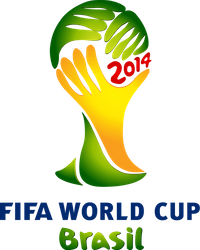 On July 1, 2014 fans watched as the U.S. Men’s Soccer Team was eliminated from World Cup by Belgium. It was hard to miss the brilliant saves by goalie Tim Howard or the l missed scoring opportunity by Chris (Wondo) Wondolowski. But what fans probably missed, were the match-box sized GPS trackers Team USA doctor, George Chiampas, was monitoring on his players during the game. As part of an overall effort to prevent injuries, these technologies measure running distances and player workloads. Other devices monitored players’ sleep patterns to detect possible fatigue or cardiovascular issues. The goal was to reduce the number of injuries to two or less per game and to monitor overall fitness both on and off the field. As with most sports, soccer will never be injury free even at the professional level. But the ability to reduce the numbers has certainly been aided by the implementation of these new technologies.
On July 1, 2014 fans watched as the U.S. Men’s Soccer Team was eliminated from World Cup by Belgium. It was hard to miss the brilliant saves by goalie Tim Howard or the l missed scoring opportunity by Chris (Wondo) Wondolowski. But what fans probably missed, were the match-box sized GPS trackers Team USA doctor, George Chiampas, was monitoring on his players during the game. As part of an overall effort to prevent injuries, these technologies measure running distances and player workloads. Other devices monitored players’ sleep patterns to detect possible fatigue or cardiovascular issues. The goal was to reduce the number of injuries to two or less per game and to monitor overall fitness both on and off the field. As with most sports, soccer will never be injury free even at the professional level. But the ability to reduce the numbers has certainly been aided by the implementation of these new technologies.
GPS devices are also being employed to study the effects of weather on player performance. Prevailing wisdom had it that the tropical heat of Brazil would result in increased dehydration and reduced stamina for teams, especially those from Europe. Therefore ahead of World Cup 2014, University of Exeter researchers conducted an experiment to test that theory. As expected the total distance covered by each athlete was shortened under hot outdoor conditions. But surprisingly, sprint speed, ball possession and passing success rate were all higher. Lead researcher, Magni Mohr, concluded that elevated muscle temperature may have more athletic benefits than previously thought. His one caveat being that an athlete’s individual response to heat supersedes any generalizations derived from even well constructed testing. Perhaps that is why a Brazilian judge amended the FIFA regulation of non-mandatory water breaks after 30 minutes of play time, ruling instead that water breaks would be made mandatory in heat above 90⁰ Fahrenheit.
So far, GPS monitoring provides the most accurate data for field sports. A similar study of court-based sports found under reporting of distances and players’ speed using this technology. Hopefully new technologies will provide more accurate means of testing in confined areas and help reduce injuries in all sports. At least, the GPS can be one more tool in the rehabilitation professionals’ arsenal. Tell us what you think on our Facebook page.